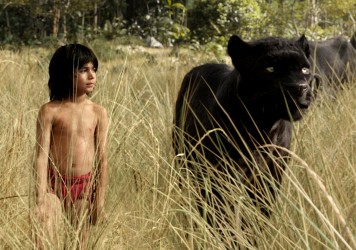Ang Lee’s dazzling CG dreamworld basks in the danger of sea-bound solitude, but it all cloaks a big, banal religious metaphor.
With Life of Pi, director Ang Lee, often derided in certain circles for not possessing a distinctive visual signature, crafts a pictorially rich, occasionally stunning exercise in CG imagemaking. And yet in concocting a slightly askew dreamworld of computer-generated tigers and islands overrun by skittish meerkats, Lee hasn’t exactly staked out a fresh mode of visual creation.
Instead, he’s made skilful use of available technologies (including a nicely controlled employment of 3D) to build a series of images that, although initially thrilling, come to feel like deeply self-conscious spurts of overly prettified kitsch.
Based on Yann Martel’s bestselling novel of the same name, Lee’s film follows young Pi (short for ‘Piscine’) Patel (Suraj Sharma) as he leaves his native India with his family who decide to shut down their zoo, relocate to Canada and sell off the animals upon arrival.
They encounter a storm which sinks the ship and kills everybody leaving him adrift on a lifeboat and in the company of a ferocious tiger named Richard Parker. What’s striking about the film is not so much the director’s facility with set-pieces (the shipwreck sequence is a staggering triumph) or the skilful creation of the CG tiger (whose subtlest movements feel utterly realistic), but Lee’s willingness to let large stretches of the film play out in relative uneventful quiet, a decision no doubt dictated by the source material.
Life Of Pi excels in those moments that deal with its hero’s stubborn process of learning to survive and tame his ravenous boatmate. As he consults a handy manual on the subject, Pi’s attempts at these twin tasks are played with humour and imagination and, above all, an unhurried quality appropriate to a film set nearly entirely at sea and with only one speaking character.
This tranquility can last only so long, though, as Lee must, after all, tell a story. And not just any story, but one that, per its film-opening mandate, is meant to do something like prove the existence of God.
Introduced by a framing device in which the now-grown Pi (Irrfan Khan) relates his adventures to a reporter (Rafe Spall), the film announces its intentions to be a specifically religious fable, an imperative that Lee and Finding Neverland screenwriter David Magee downplay via a series of hedge-betting manoeuvres that seem to equate Catholicism, Hinduism, Islam and secular existentialism as all equally valid religions.
The film is also specifically about the art of storytelling, a device that stands in – insufficiently? – as a metaphor for faith. But mostly these religious meditations (which only very rarely factor into the narrative proper, as when, in a desperate moment, Pi delivers a plaint to the heavens) are a weak structural device to add heft to what is essentially a simple story.
This along with Lee’s blandly bravura flourishes, such as a 2001-style headtrip sequence. These become necessary because over the course of the film’s two-hour runtime, the thinness of the central story becomes quickly apparent.
There’s little emotional investment in the character, so after a while it’s just him and a tiger floating on the briny. Swirl in some CG stunts and a quest for God, then apparently you’ve got yourself a film of grand significance.
Published 20 Dec 2012
How will Yann Martel’s supposedly unfilmable novel play on the big screen?
Ang Lee keeps the story humming along and looking incredibly good.
There’s less than meets the eye in Lee’s ultimately unsatisfying fable.

Jon Favreau brings Rudyard Kipling’s classic tale crashing into the 21st century. The result is astonishing.

By Adam Nayman
Ang Lee takes American exceptionalism to task in this hyper-real spectacle.